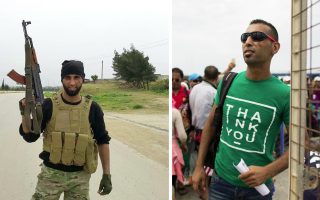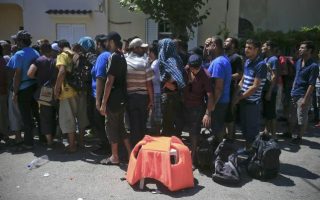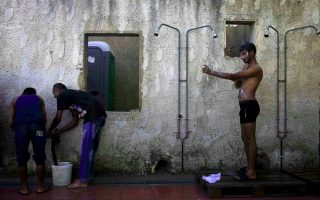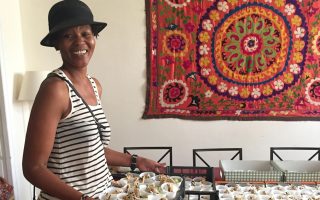Welcome mat fraying as more migrants reach Greek island
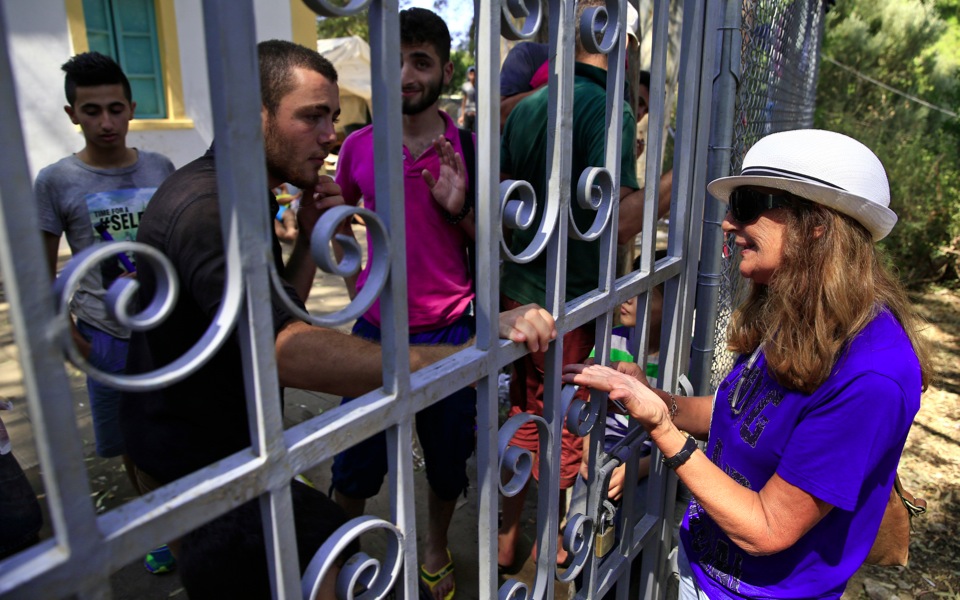
The islanders bring food, drinks, clothing and necessities like diapers and toothpaste to the migrants huddled on this tiny outcrop in the Aegean Sea.
The generosity comes naturally to residents of Leros: The island once took in political prisoners banished here by Greece's former military rulers, a tradition that breeds a sense of duty to welcome migrants fleeing war and poverty in the Middle East and Africa.
A dedicated grass-roots network is the heart of Leros' mission to be a paragon of humanitarian relief. But it is becoming a victim of its own success: Migrant arrivals are surging as asylum-seekers catch wind of the islanders' generosity — and the welcome mat is starting to fray.
The 75-square-kilometer (29-square-mile) island, with a permanent population of fewer than 10,000 people, is struggling to cope with the hundreds of migrants who turn up most days in smugglers' boats, following a perilous boat crossing from Turkey.
"People in Turkey said we should come here because this was maybe the best island in Greece," said Obaida Sabbouh, a Syrian from the war-torn city of Homs.
This week, hundreds of migrants were camped out on the shaded grounds of the island's hospital, in a half-built seaside cinema and theater complex, and at the headquarters of the local coast guard as they waited for seats on the next available ferry to the Greek mainland.
There is no daily ferry service, and in the tourist season seats are scarce. That means migrants often have to wait days to leave, sleeping rough and relying on handouts.
"The municipality and the (volunteer) solidarity network are trying their best to help the people, but their manpower and resources aren't enough," said the island's mayor, Michalis Kolias. "The situation is … tragic."
The driving force behind the volunteer network is Martina Katsiveli, a 60-year-old former judge, who marshals residents and tourists but also urges the migrants to help themselves — handing out brooms and garbage bags for keeping camps clean.
A refugee activist for years, she has traveled to Bosnia, Kosovo and Iraq to help refugees. Now they are coming to her. "I cannot turn my head away," she said. "I saw how catastrophic war is."
"Hello, Madam Martina," one man calls out as she walks past a group washing clothes on the hospital grounds. A youngster asks her for a cigarette for his sister, although it's clearly for him. She asks how old he is; he looks younger than his reply of "18." She hands him a cigarette anyway, from the crumpled pack she carries with her at all times, along with a frequently ringing mobile phone.
Katsiveli noted that of the 9,000 migrants who landed on the island this year, 2,550 have come in the last 15 days. She fears the numbers are stretching even her dedicated network to the breaking point. "We can't sustain this situation," she said. "There is no money."
A block down a dusty, tree-lined street, some 200 migrants sought shelter from the sun on the grounds of the coast guard headquarters — many of them sitting on the life vests they wore on their crossings. The migrants have to share one toilet. There are no showers.
Housing the migrants is a constant problem. Authorities want them out of the hospital grounds, but there are few places to go. Authorities even investigated the possibility of putting them up in an old psychiatric hospital, but rejected the idea as impractical and too expensive, Katsiveli said.
Now the island's mayor fears attitudes are beginning to shift as numbers grow. "Yeah, I am sure we will feel a difference if we have, for example, 2,000 people," Kolias said. "Because the locals won't feel sure and safe in their own homes."
He is appealing for more ferries to ship people to the mainland: "The island can't be turned into a detention center."
In a sign of potential unrest among some of the island population, a man claiming to be from the far-right Golden Dawn movement hovered outside the grounds Monday, saying there were too many migrants and they could cause problems.
Tourists on the picture-perfect island are also helping out. Anna Unterberger and Rene Frotscher, from Berlin, arrived laden with bags of nectarines and bananas and other necessities like sleeping mats and toiletries.
After reading about the migrants' plight, they wrote to friends and family in Italy and Germany asking for help. In a day, they received pledges of 500 euros ($550) to buy supplies, Unterberger said.
"It is difficult, you don't know what to do," she said. "We're just doing the best we can."
[AP]
